By: Peter Hyman
‘Imagine a world where you are enclosed by war, not knowing if you are going to die tomorrow or tonight, or maybe even in an hour. Living in a world of fear. Hearing gunshots and shelling day and night, hoping that you won’t be the one to get hit. Not wanting to step outside your door to go to the shops, in fear that you might not return home.” Ava has poise. Her eyes scan the gathering. She has them hooked.
“There are children like Wasem and Maher, who were three and 11. They were both executed with knives in front of their parents, who felt as if they were being tortured themselves.” This is a conference room in the House of Lords: an audience of academics, politicians, charity leaders and experts.
“The people who are killing and destroying the country and causing the civil war are following harsh dictator [Bashar al-]Assad and are fighting against Isis, an equally brutal militant religious group. The citizens are caught up in the middle of this awful war and are fleeing the country. This has caused one of the largest refugee crises known in history.” There are nearly 200 people in the room. Ava is only 12.
“So it’s pretty bad, right? We surely must be doing something? There are now over 19.5 million Syrian refugees, that’s nearly four times the population of Scotland. These are harmless, innocent citizens fleeing from war and trying to get to safety. So far Britain has only let one thousand refugees into the country. Only one thousand!
“Let them in! Everybody, together. Let them in!” The audience of the great and the good join Ava in a rousing chorus of “Let them in”. She stares, shocked that they have followed her command. Surprised that her words could have such power. Relieved, drained, tearful, she sits back down.
This is the launch event for a piece of research into the importance of speaking in schools. Ava, like many at School 21 – a state-funded, non-selective free school in Stratford, east London – is finding her voice. She had chosen a subject dear to her heart, one she wanted to speak out about, to craft and deliver something of true worth. Like millions of young people, she is growing up in an age of extraordinary new opportunities, an increasing number of perils and a series of troubling moral dilemmas.
In a world of “alternative facts”, how can we give young people the skills to shine a spotlight on the truth?
At a time of growing disaffection with politics, and alienation caused by globalisation, how do we teach young people that ignorance is not bliss, that expertise is of value, that they can make a difference?
With extreme politicians on the march and the potential for an era of “illiberal” democracy to sweep the west, how do we teach young people that tolerance is a quality to be prized, not discarded when times get tough?
When scientists create babies from three “parents”, what should young people be taught so they can respond with the knowledge but also a moral compass? When an exciting but potentially terrifying world of artificial intelligence opens up, how do we equip young people to understand and shape this changed world? When a 100-year lifespan is within the grasp of those at school today, with profound implications for personal finance, lifestyle, careers and lifelong learning, how do we teach young people to be sufficiently agile? What kind of education do we need that can possibly meet these mighty challenges?
There are no easy answers and, like politics, education suffers from an unhealthy polarisation – divided between those who believe that technology renders the teacher obsolete and those who believe that the role of the teacher is to be boot-camp instructor.
A world without teachers?
Some truly believe that the teacher is and should be on the way out. This is an individualistic world, they say, so education needs to be customised. School of One in New York, for example, is designed to give everyone a personalised curriculum each day by using an algorithm to adapt instructional methods and content based on what was learned the day before. The growth of Moocs (massive open online courses) means millions of people around the world can access expertise and learning online. And many teachers are trialling forms of blended and “flipped learning”, where students have absorbed a lot of information and come to a lesson ready to discuss, apply and interrogate their knowledge.
As parents, we are aware of how quickly our children can pick up new skills by watching a clip on YouTube: a scientific experiment, playing the guitar, knitting, coding, even learning to read. We also know as adults that there is such a thing as “just in time” knowledge. When we want to develop a hobby like gardening, build an extension to our house, we swot up on it, immerse ourselves in it as and when we need to. These new types of learning should not be dismissed, as some do, either as fads or as doomed to fail. Neither is the case.
But there are limits to this model, and limits I believe to it being applied wholesale to schools. For, as one of the drama teachers at School 21 says: “Ultimately, teaching is about the relationship between the teacher, the student and the text.” (The text meant in its broadest sense.)
We all know that there is nothing quite like being inspired by an expert, having Shakespeare or a language or the wonders of science brought alive by someone who has a deep passion and real expertise. The teacher, like a great sports coach, is skilled at diagnosing what we need and guiding our deliberate practice – the idea of working again and again, not on the whole performance but on those parts we find most difficult until they start to come easily and automatically.
When teachers are driven out
“Why are you looking to leave your current school?”
“Because all that matters seems to be exams. Students just seem to be going through the motions.”
It is an interview at School 21. We are looking for an English teacher. We have a good field of candidates. But the candidate in front of us is the fourth in succession to give an almost identical answer.
“It’s not right that all I teach is exam practice. I love my subject but you know they’ve added another 100 pages of biology to get through in the name of making things harder. It means you have to plod through the content with no time to deepen their understanding. I want to inspire my students, but I’m being ground down.”
This teacher is describing in sad but graphic detail the exam factory. Most are unaware of how bad it really is; many teachers are so used to it they no longer question.
Ofsted judges schools on data above all else, which means exam results: year 6 Sats, GCSEs and A-levels. Of these, the pressure on GCSEs is highest.
When a single exam is high stakes on three levels (the student, the school and the system) it affects the dynamics and motivations of everyone so profoundly that the system as a whole is distorted and perverse incentives will start to flow. GCSE results are the student’s ticket to future success; the determinant of the headteacher’s job; and the system’s evidence to show improvement over time. Yet these exams are not even ones that employers believe are useful for the world students are entering.
Instead, education is skewed to meet the needs of this rigid accountability framework. Perverse incentives play out as follows:
Perverse incentive 1
Teachers feel the pressure to choose the easiest exam boards and easiest exam content so they can maximise results. English departments, for example, choose novels to study because the books are shorter, the ideas less complex. Easier humanities are chosen for those who will find history difficult.
Perverse incentive 2
Instead of the GCSE syllabus beginning in year 10, giving two years of teaching, schools cover themselves by starting in year 9. So students are being relentlessly drilled for exams for three years of their five-year secondary schooling. Many schools give students GCSE grades from year 7.
Perverse incentive 3
Students are often given a diet solely of exam classes. There is often no non-examined curriculum in years 9-11 because there is no room with all the exam classes. This means that unless you choose to do a GCSE in music, art or drama you do not have any lessons in these from the age of 14 onwards.
Perverse incentive 4
The Ebacc (English baccalaureate) subjects do not include any creative subjects so at a time when creativity, communication and problem-solving are prized in the real world, these subjects are being squeezed in schools.
In such a system, teachers need to become not subject experts but experts in exam technique. Pupils need to get brilliant at passing exams. Pupils get good, very good, at knowing a four-mark question from a six-mark question, a describe question from a compare question. Teachers are asked to “intervene” on children before school, at lunch, after school, on Saturdays, in holidays. “Weaker” or “low ability” students have intervention timetables for almost every subject.
The impact of this is a compliance culture. The tramlines are set. Exam success is a military operation. It is hard to blame schools for this. Headteachers have to work with the system they are given. We have a duty to get each of our students through it. But it means that innovation is a risk. In an exam factory there is little room for individuality. Students are not allowed to mature at different rates, develop different interests, have wobbles at the “wrong time” because it all upsets the best-laid plans.
Many of the schools that have the highest performing exam factory are also the most regimented. Regimentation and compliance is the way of getting people through a system they don’t enjoy. So, more schools opt for the silent treatment. Silence in corridors, silent classrooms, stricter rules. Detentions are regular and relentless for those who transgress. The message is not lost on young people: you are thugs who need civilising; we can’t trust you to talk; we don’t want to hear from you; do as you are told.
These authoritarian regimes deliver for a time but often leave young people floundering when they move to university or work, where the straitjacket is removed. Authoritarian regimes also lead to unthinking young people, afraid to question authority, even when that authority is heading off the rails.
The alternative: an engaged education
So we are currently trapped between these two futures: one where teachers may become irrelevant and one where inspiring teachers leave in their droves, driven out by the exam factory.
This simply isn’t good enough. “Education,” as Nelson Mandela put it, “is the most powerful weapon for changing the world.” Yet, it is a weapon currently without ammunition. We have a one-dimensional education system in a multidimensional world. We are living in an age of big challenges, big data, big dilemmas, big crises, big opportunities. Yet school too often is small – small in ambition, small in what it values, small in its scope.
What is at stake is the wider achievement of our young people. A small education, and a narrow set of measures, undervalues the potential, vitality and successes of our children. We need something different. An engaged education is one capable of meeting the challenge of the times and where we properly engage with the head, heart and hand.
An academic education (the head) starts with the basics of literacy and numeracy, then builds out to a deep love of words and facility with the English language. It then develops a depth of knowledge of key concepts and ways of thinking in areas such as science, maths, history and creative arts. This knowledge should be empowering knowledge – knowledge that draws on “the best that has been thought and said” from the past, as the cultural critic Matthew Arnold advocated, but importantly is shaped and applied to the needs of the present and future.
A character education (heart) is one that provides the experiences and situations for young people to develop a set of ethical underpinnings, well-honed character traits of resilience, kindness and tolerance, and a subtle, open mind. It is about serving others and giving back to the community – developing a sense of interdependence and not just independence.
A can-do education (hand) is one that nurtures creativity and problem-solving, that gives young people the chance to respond to client briefs, to understand design thinking, to apply knowledge and conceptual understanding to new situations. To be able to make and do and produce work through craftsmanship that is of genuine value beyond the classroom.
Those who experience an engaged education understand that they have a responsibility to apply their knowledge in a way that makes the world a better place. And it would do so much to bridge the academic, vocational and technical divide.
There are headteachers and teachers across the world who not only believe passionately in this kind of education but are doing something about it. Some in the United States, Canada and Australia are creating schools that develop particular skills sets and ways of thinking – design thinking, coding, Stem (science, technology, engineering and mathematics). There are teachers that are thinking deeply about how to develop the character, resilience and agility of young people. Other schools such as High Tech High, New Tech Network and Big Picture are combining academic rigour with the chance for students to undertake real-world learning.
To achieve this multidimensional education these educators believe that there need to be fundamental changes in the way schools run – a revolution in curriculum planning, timetabling, the role of the teacher and, perhaps most of all, our beliefs about young people.
These are essential changes in approach that we are developing at School 21, which we opened in 2012. We need a noisy education not a silent one. A noisy education is one where we elevate speaking to the same status as reading and writing. Where we allow young people such as Ava to find their voice and help them grow in confidence and articulacy. It is a place of curiosity and questioning, debate and depth of understanding. The dialogic classroom is one in which talk aids thinking and understanding; through Socratic seminars and exploratory talk, children of a young age learn to wrestle with moral issues, explore difficult concepts and hone their arguments. We want staff to be noisy too: debating their craft and speaking up for how they want to change education.
We need education to be based on trust not compliance. We need to trust young people more. School needs to be not a grinding slog that will lead one day to qualifications, but a joyful time of growth and exploration. We need to believe that students can produce work of genuine value to the world while at school. That is why one of our core approaches is the idea of craftsmanship, crafting work through multiple drafts until it is beautiful. It is why we give students real problems to solve from the community – saving local habitats, using maths skills to campaign against the construction of a local concrete factory, telling the stories of the local immigrant populations for the first time. We also need to trust staff more. Give them the space, the time and the collective autonomy that produce extraordinary learning for young people. That is why we provide dedicated time for collaborative planning; regular, precise and supportive feedback for all staff; and an atmosphere of inquiry, research and intellectual rigour in which teachers feel “re-professionalised” and not just cogs in the exam factory wheel.
We need education to be expansive not constrained
Schools are too often inward looking, lost in their own bubbles. We need to make schools engaged in the world, porous to outside organisations, and support them to form productive collaborations to foster innovation. Students benefit from real-world learning, from having experts – scientists, theatre directors, mathematicians, historians – critique their work.
It is why we have reinvented work experience so students spend half a day every week in an organisation doing a real-world project: recent examples include designing an app for the Department for Education to support business managers in schools; redesigning the children’s menu at a chain of hotels; working out better systems for listening to frontline staff in a major bank.
Three changes to the system are essential to have any chance of a new pathway. First, Ofsted requires a complete overhaul. It was once perhaps essential, a way of ensuring minimum standards, a floor beneath which schools could not go. It encouraged and in some cases forced schools that had no strategic plan or poor behaviour systems to get their act together. But at its heart is a destructive and damaging view of human nature. Instead of believing, as they do in most countries, that failure in schools is not the result generally of laziness or incompetence, the whole philosophy of Ofsted has been punitive. Rapid inspections, brutal judgments, a them-and-us culture.
The result is a climate of fear, and inevitably headteachers start to do things they know are not what students and teachers really need – over-monitoring, prescription for all lessons, over-testing – all in the name of doing well under Ofsted criteria. The stakes are so high that doing something turns into doing anything – almost regardless of the impact.
With the arrival of Amanda Spielman as the new head of Ofsted this month, now is the time for a radical change. Ofsted should be scrapped altogether or reformed so dramatically that it becomes a genuinely peer-led and developmental organisation.
There are three functions that Ofsted can usefully perform and all need a different solution. One, to check compliance – are children being safeguarded and protected? Here there is a case for no-notice inspections so that a school cannot cover up any shortcomings. Two, to check on standards of progress and attainment. This can be done using nationally collected statistics without a visit and if there is anything alarming it can investigate further with the school. Three, to develop the school. This should be done over several visits during a year and be conducted by a group of peers – headteachers and teachers. It should be designed not to catch a school out, but to work with it on a plan for improvement and innovation. No grades are necessary just an action plan that has to be shared with all.
Second, we need a different and more sophisticated exam regime – less high stakes, less standardised, fewer subjects, but measuring a broader range of qualities. GCSEs should be scrapped. They are a school leaving exam at 16 when you are not allowed to leave education until 18. They should be replaced by a smaller set of exams, including English, maths and science, which can be taken when students are ready in their education and could be benchmarked internationally. There should be the chance for students to be assessed on a broader range of qualities, including a portfolio of their best work and their spoken language.
Third, we need an agenda for opening up education to genuine innovation. Now is the time, not for incrementalism, but for changes capable of meeting the pressing needs of the age. We need an innovation hurdle that has to be leapt by those wanting to open new schools. There should be money targeted at innovation in those parts of the country that need the biggest boost to education outcomes – including the north-east and north-west, old seaside towns, and parts of the Midlands. Regional schools commissioners should be charged with nurturing innovation and helping schools broker partnerships with organisations that can help transform learning and provide real-world opportunities. There should be proper funding for the systematic teaching of speaking skills in all schools as one of the most important ways of increasing social mobility.
There are thousands of young people like Ava, wanting to find their voice and make a difference to the world. And thousands of extraordinary, passionate, thoughtful teachers ready to be unleashed to do amazing things. Most want to be freed from outdated notions of being traditional or progressive.
There is common ground among the vast majority of teachers, a shared desire for an engaged education. They are hungry for a more expansive education that connects pupils to the great works of our past but also the richness, variety and opportunities of the modern world. An education that is layered, ethical and deals with complexity as an antidote to the shallow, overly simplistic debates our young people often have to listen to. The best defence against extremism and “illiberal” democracy is an education that teaches reflection, critical thinking and questioning.
Now is the time to release this energy. It is the time to remove the straitjacket, unshackle the potential and let our system become the most creative and exciting in the world.
Standing outside Mango, a high street fashion shop, on Oxford Street are a dozen School 21 students in orange boiler suits. They are in the middle of a human rights project developed in their Spanish lessons. They are protesting about what they see as the injustice of a powerful company that has failed to compensate the people of Bangladesh for a fire in their clothes factory. They have produced a website, petition and learned the Spanish that will allow them to communicate with the shop’s owners and are now drumming up support for their campaign. In the words of their website: “We are a group of people with big ambitions who believe in finding justice for those who need it. There are other campaigns that we are doing all under the hashtag #S21redlines. Many people would say that we are ‘just’ children, but Mozart was ‘just’ a child and to compose something better than his work at seven years old, you’d be hard pushed. On our side we have professional campaigners, government officials and big human rights organisations so we can do a lot. We are big thinkers. We are for success. We are for the 21st century. We are for justice.”
An engaged education – perhaps the only hope we have in this mad world.
Source : https://www.theguardian.com/education/2017/feb/26/revolution-in-uk-schools
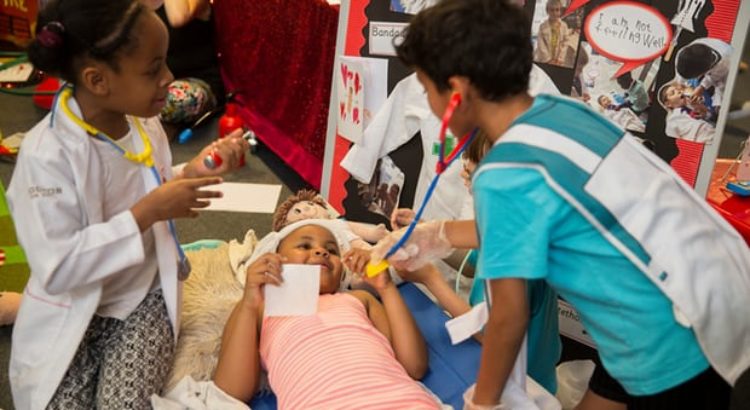
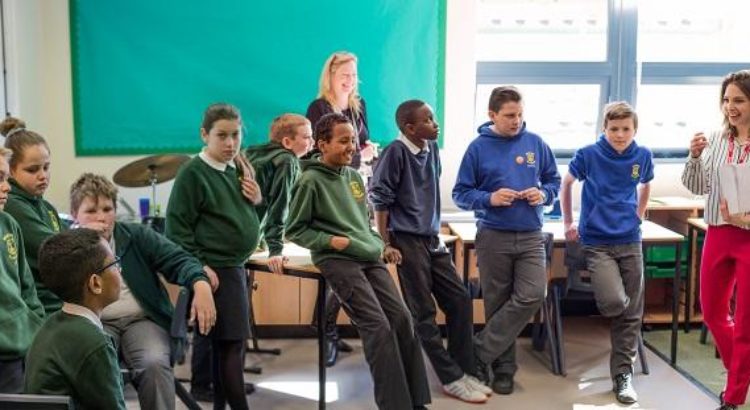
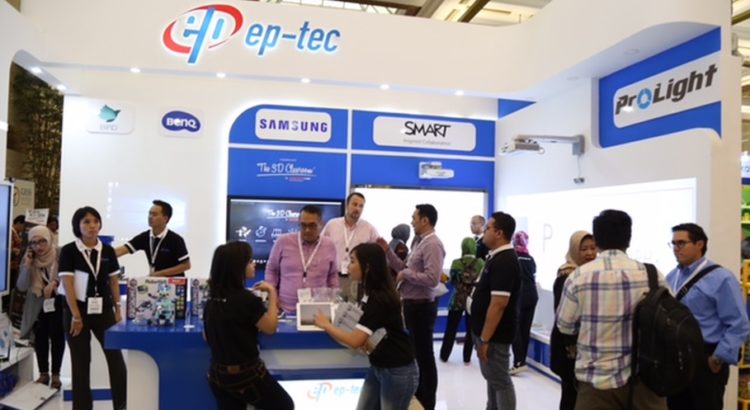
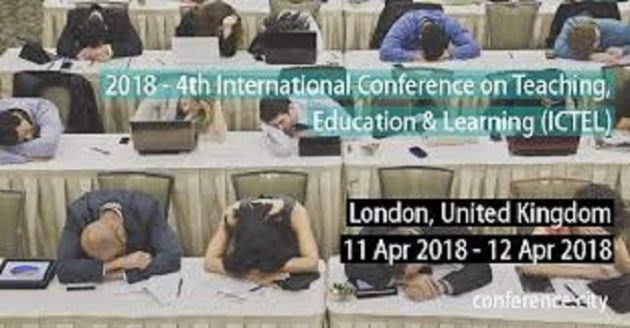

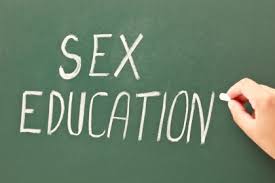
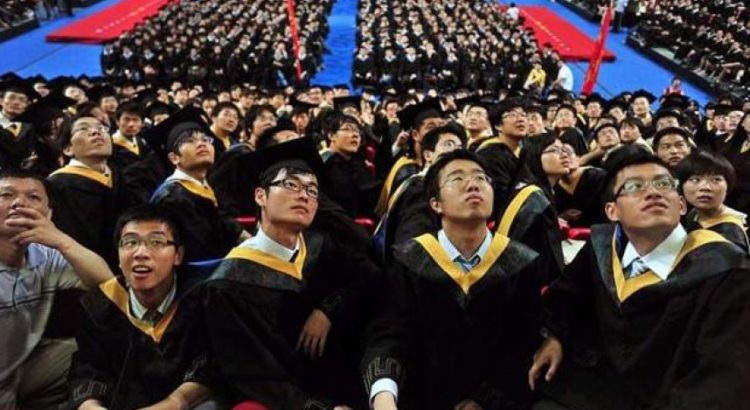





 Users Today : 84
Users Today : 84 Total Users : 35459550
Total Users : 35459550 Views Today : 133
Views Today : 133 Total views : 3417891
Total views : 3417891